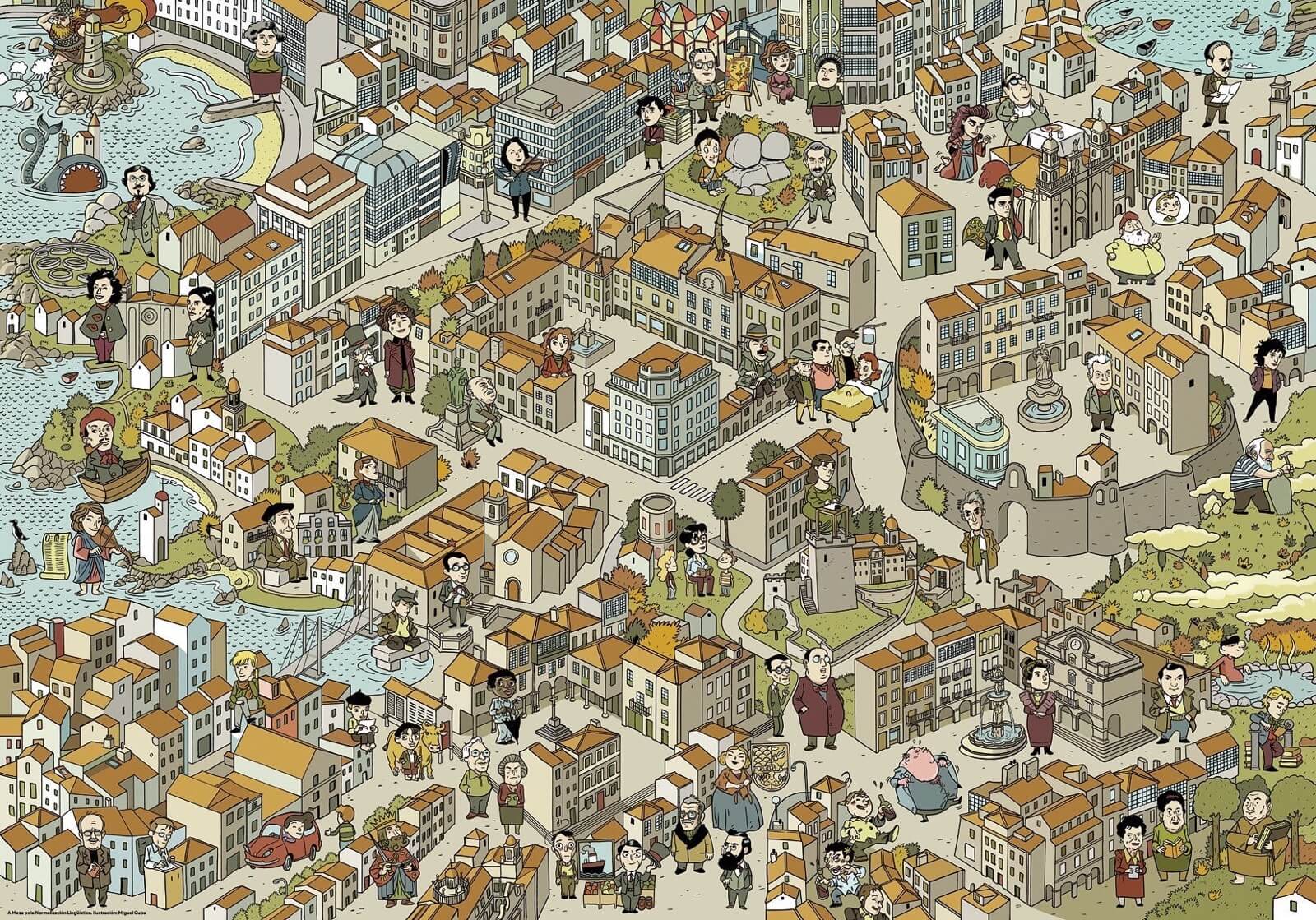
“A land with trees in the hills is worth more than a state with gold in the banks” — Castelao
Yesterday was Galician Literature Day, a public holiday here in the northwestern Spanish community/nation. It started in 1963 marking the centennial Rosalía de Castro’s book of poetry Cantares Gallegos. Every year since, the Royal Galician Academy picks one Galician writer to celebrate. This year, under quarantine, it was Ricardo Carballo Calero.
Calero was a lifelong republican and Galician nationalist and fought for the Second Republic against the fascist rebels. He was captured, spent some time in prison in Andalusia, and was released some years later. But Calero is most known for his scholarly work on Galician literature and language. He was a member of the Royal Galician Academy, an expert in the work of Rosalía De Castro, and the first university professor in the field of Galician linguistics and literature, which was suppressed during the Franco regime.
He is also known for his theory on reintegracionismo. Galician is actually closer to Portuguese than Castilian Spanish. In fact, Galician is the mother language of Portuguese. Calero was the first to systematically study the origins and etymology of the Galician-Portuguese proto-language and its progeny. He believed that the two languages are actually just variants of the same language rather than two distinct languages.
When the fascist regime ended with Franco’s death, Galicia became an autonomous community, with both Galician and Castilian Spanish its official languages. Calero was designated to lead a group to develop an orthographic norm. Using Portuguese as a guide, the group postulated a gradual return, a reintegration with Portuguese. But this was seen as anti-Spanish, so the norms were scrapped, Calero resigned, and formed the Galician Language Association with reintegracionismo as its goal.
The subject of the Galician language is super important in the community. While the cities are thoroughly castilianized, especially Calero’s birthplace of Ferrol due to the Spanish navy’s port the, Galician reigns supreme in the rural areas. There are many dialects. With the imposition (and some say mismanagement) of the Galician language in schools, a new generation of neofalantes, speakers who did not learn Galician at home, are beginning to use the language as a vehicle for a second cultural, political, and social renaissance.
Discover more from Among the Stones
Subscribe to get the latest posts sent to your email.